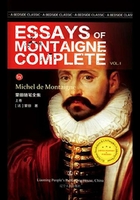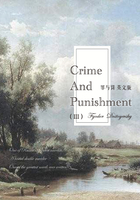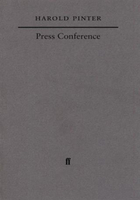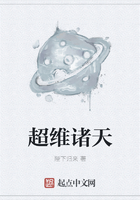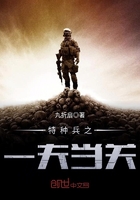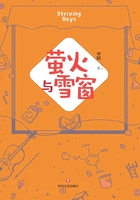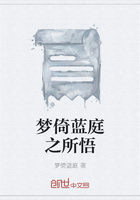After an absence of twelve years I entered Istanbul like a sleepwalker. "The earth called to him," they say of men who are about to die, and in my case, it was death that drew me back to the city where I'd been born and raised. When I first returned, I thought there was only death; later, I would also encounter love. Love, however, was a distant and forgotten thing, like my memories of having lived in the city. It was in Istanbul, twelve years ago, that I fell helplessly in love with my young cousin.
Four years after I first left Istanbul, while traveling through the endless steppes, snow-covered mountains and melancholy cities of Persia, carrying letters and collecting taxes, I admitted to myself that I was slowly forgetting the face of the childhood love I'd left behind. With growing panic, I tried desperately to remember her, only to realize that despite love, a face long not seen finally fades. During the sixth year I spent in the East, traveling or working as a secretary in the service of pashas, I knew that the face I imagined was no longer that of my beloved. Later, in the eighth year, I forgot what I'd mistakenly called to mind in the sixth, and again visualized a completely different countenance. In this way, by the twelfth year, when I returned to my city at the age of thirty-six, I was painfully aware that my beloved's face had long since escaped me.
Many of my friends and relatives had died during my twelve-year exile. I visited the cemetery overlooking the Golden Horn and prayed for my mother and for the uncles who'd passed away in my absence. The earthy smell of mud mingled with my memories. Someone had broken an earthenware pitcher beside my mother's grave. For whatever reason, gazing at the broken pieces, I began to cry. Was I crying for the dead or because I was, strangely, still only at the beginning of my life after all these years? Or was it because I'd come to the end of my life's journey? A faint snow fell. Entranced by the flakes blowing here and there, I became so lost in the vagaries of my life that I didn't notice the black dog staring at me from a dark corner of the cemetery.
My tears subsided. I wiped my nose. I saw the black dog wagging its tail in friendship as I left the cemetery. Sometime later, I settled into our neighborhood, renting one of the houses where a relative on my father's side once lived. It seems I reminded the landlady of her son who'd been killed by Safavid Persian soldiers at the front and so she agreed to clean the house and cook for me.
I set out on long and satisfying walks through the streets as if I'd settled not in Istanbul, but temporarily in one of the Arab cities at the other end of the world. The streets had become narrower, or so it seemed to me. In certain areas, on roads squeezed between houses leaning toward one another, I was forced to rub up against walls and doors to avoid being hit by laden packhorses. There were more wealthy people, or so it seemed to me. I saw an ornate carriage, a citadel drawn by proud horses, the likes of which couldn't be found in Arabia or Persia. Near the "Burnt Column," I saw some bothersome beggars dressed in rags huddling together as the smell of offal coming from the chicken-sellers market wafted over them. One of them who was blind smiled as he watched the falling snow.
Had I been told Istanbul used to be a poorer, smaller and happier city, I might not have believed it, but that's what my heart told me. Though my beloved's house was where it'd always been among linden and chestnut trees, others were now living there, as I learned from inquiring at the door. I discovered that my beloved's mother, my maternal aunt, had died, and that her husband, my Enishte, and his daughter had moved away. This is how I came to learn that father and daughter were the victims of certain misfortunes, from strangers answering the door, who in such situations are perfectly forthcoming, without the least awareness of how mercilessly they've broken your heart and destroyed your dreams. I won't describe all of this to you now, but allow me to say that as I recalled warm, verdant and sunny summer days in that old garden, I also noticed icicles the size of my little finger hanging from the branches of the linden tree in a place whose misery, snow and neglect now evoked nothing but death.
I'd already learned about some of what had befallen my relatives through a letter my Enishte sent to me in Tabriz. In that letter, he invited me back to Istanbul, explaining that he was preparing a secret book for Our Sultan and that he wanted my help. He'd heard that for a period while in Tabriz, I made books for Ottoman pashas, provincial governors and Istanbulites. What I did then was to use the money advanced by clients who'd placed manuscript orders in Istanbul to locate miniaturists and calligraphers who were frustrated by the wars and the presence of Ottoman soldiers, but hadn't yet left for Kazvin or another Persian city, and it was these masters—complaining of poverty and neglect—whom I commissioned to inscribe, illustrate and bind the pages of the manuscripts I would then send back to Istanbul. If it weren't for the love of illustrating and fine books that my Enishte instilled in me during my youth, I could have never involved myself in such pursuits.
At the market end of the street, where at one time my Enishte had lived, I found the barber, a master by trade, in his shop among the same mirrors, straight razors, pitchers of water and soap brushes. I caught his eye, but I'm not sure he recognized me. It delighted me to see that the head-washing basin, which hung by a chain from the ceiling, still traced the same old arc, swinging back and forth as he filled it with hot water.
Some of the neighborhoods and streets I'd frequented in my youth had disappeared in ashes and smoke, replaced by burnt ruins where stray dogs congregated and where mad transients frightened the local children. In other areas razed by fire, large affluent houses had been built, and I was astonished by their extravagance, by windows of the most expensive Venetian stained glass, and by lavish two-story residences with bay windows suspended above high walls.
As in many other cities, money no longer had any value in Istanbul. At the time I returned from the East, bakeries that once sold large one-hundred drachma loaves of bread for one silver coin now baked loaves half the size for the same price, and they no longer tasted the way they did during my childhood. Had my late mother seen the day when she'd have to spend three silver pieces for a dozen eggs, she'd say, "We ought to leave before the chickens grow so spoiled they shit on us instead of the ground." But I knew the problem of devalued money was the same everywhere. It was rumored that Flemish and Venetian merchant ships were filled with chests of counterfeit coin. At the royal mint, where five hundred coins were once minted from a hundred drachmas of silver, now, owing to the endless warring with the Persians, eight hundred coins were minted from the same amount. When Janissaries discovered that the coins they'd been paid actually floated in the Golden Horn like the dried beans that fell from the vegetable-sellers pier, they rioted, besieging Our Sultan's palace as if it were an enemy fortress.
A cleric by the name of Nusret, who preached at the Bayazid Mosque and claimed to be descended from Our Glorious Prophet Muhammad, had made a name for himself during this period of immorality, inflation, crime and theft. This hoja, who was from the small town of Erzurum, attributed the catastrophes that had befallen Istanbul in the last ten years—including the Bah?ekap? and Kazanj?lar district fires, the plagues that claimed tens of thousands, the endless wars with the Persians at a cost of countless lives, as well as the loss of small Ottoman fortresses in the West to Christians in revolt—to our having strayed from the path of the Prophet, to disregard for the strictures of the Glorious Koran, to the tolerance toward Christians, to the open sale of wine and to the playing of musical instruments in dervish houses.
The pickle seller who passionately informed me about the cleric from Erzurum said that the counterfeit coins—the new ducats, the fake florins stamped with lions and the Ottoman coins with their ever-decreasing silver content—that flooded the markets and bazaars, just like the Circassians, Abkhazians, Mingarians, Bosnians, Georgians and Armenians who filled the streets, were dragging us toward an absolute degradation from which it would be difficult to escape. I was told that scoundrels and rebels were gathering in coffeehouses and proselytizing until dawn; that destitute men of dubious character, opium-addicted madmen and followers of the outlawed Kalenderi dervish sect, claiming to be on Allah's path, would spend their nights in dervish houses dancing to music, piercing themselves with skewers and engaging in all manner of depravity, before brutally fucking each other and any boys they could find.
I didn't know whether it was the melodious sound of a lute that compelled me to follow, or if in the muddle of my memories and desires, I could simply no longer endure the virulent pickle seller, and seized upon the music as a way out of the conversation. I do, however, know this: When you love a city and have explored it frequently on foot, your body, not to mention your soul, gets to know the streets so well after a number of years that in a fit of melancholy, perhaps stirred by a light snow falling ever so sorrowfully, you'll discover your legs carrying you of their own accord toward one of your favorite promontories.
This was how I happened to leave the Farrier's Market and ended up watching the snow as it fell into the Golden Horn from a spot beside the Süleymaniye Mosque: Snow had already begun to accumulate on the rooftops facing north and on sections of the dome exposed to the northeasterly breeze. An approaching ship, whose sails were being lowered, greeted me with a flutter of canvas. The color of its sails matched the leaden and foggy hue of the surface of the Golden Horn. The cypress and plane trees, the rooftops, the heartache of dusk, the sounds coming from the neighborhood below, the calls of hawkers and the cries of children playing in mosque courtyards mingled in my head and announced emphatically that, hereafter, I wouldn't be able to live anywhere but in their city. I had the sensation that my beloved's face, which had escaped me for years, might suddenly appear to me.
I began to walk down the hill and melded into the crowds. After the evening prayer was called, I filled my stomach at a liver shop. In the empty shop, I listened carefully to the owner, who fondly watched me eat each bite as if he were feeding a cat. Taking his cue and following his directions, I found myself turning down one of the narrow alleys behind the slave market—well after the streets had become dark—and located the coffeehouse.
Inside, it was crowded and warm. The storyteller, the likes of whom I had seen in Tabriz and in Persian cities and who was known thereabouts as a "curtain-caller," was perched on a raised platform beside the wood-burning stove. He had unfolded and hung before the crowd a picture, the figure of a dog drawn on rough paper hastily but with a certain elegance. He was giving voice to the dog, and pointing, from time to time, at the drawing.

